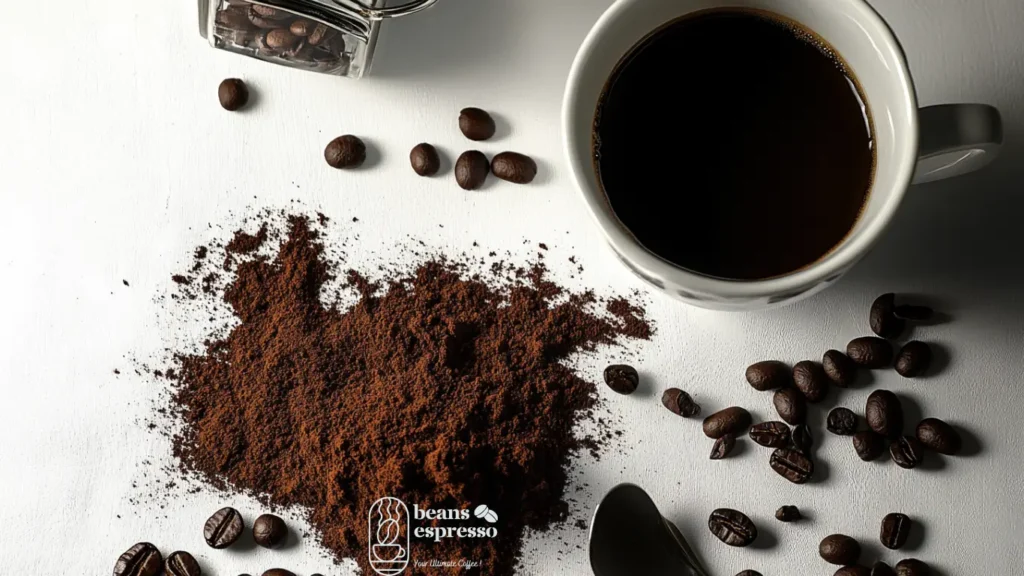How Much Caffeine Is Too Much ? Picture this: it’s a crisp morning, and you take a sip of your steaming cup of coffee. That familiar burst of energy feels like the perfect way to start the day. But have you ever wondered, how much coffee is too much? Caffeine is beloved for its stimulating effects, but overdoing it can have consequences. In this blog, we’ll break down the science of caffeine, explore the health benefits and risks, and help you strike a balance.
What Is Caffeine, and Why Do We Love It?
Caffeine is a natural stimulant found in coffee, tea, chocolate, and even some medications. It works by blocking adenosine, a chemical in your brain that makes you feel tired. This results in increased alertness, focus, and energy. But caffeine isn’t just in your morning brew—it’s hiding in sodas, energy drinks, and supplements.
To better understand how caffeine works in the body, check out this detailed guide from Mayo Clinic, which covers caffeine’s impact on the central nervous system and beyond.
How Much Caffeine Is in Your Favorite Drinks?
The amount of caffeine in coffee can vary widely depending on the type of bean, brewing method, and serving size. Here’s a quick comparison:
- Brewed coffee (8 oz): 95 mg of caffeine
- Espresso (1 shot, 1 oz): 63 mg
- Cold brew coffee (12 oz): 150–240 mg
- Black tea (8 oz): 47 mg
- Energy drinks (8 oz): 70–100 mg
- Dark chocolate (1 oz): 12 mg
If you enjoy specialty drinks like lattes or macchiatos, their caffeine content might surprise you. To dive deeper into the caffeine levels of various beverages, visit Mayo Clinic’s caffeine content guide.
How Does Caffeine Affect Your Body?
When you drink coffee, caffeine is quickly absorbed into your bloodstream, reaching its peak effect within 30–60 minutes. Here’s what happens:
- Short-term effects: Increased alertness, improved mood, and enhanced physical performance.
- Long-term effects: Regular consumption can lead to tolerance, meaning you may need more caffeine to achieve the same effects.
However, overconsumption can lead to caffeine dependency and withdrawal symptoms like headaches, fatigue, and irritability. Understanding your body’s caffeine tolerance is key to managing your intake.
How Much Caffeine Is Too Much ?
Health experts, including the FDA, recommend limiting caffeine consumption to 400 mg per day for most adults. That’s about four 8-ounce cups of coffee. But individual tolerance varies based on factors like:
- Age: Children and adolescents are more sensitive to caffeine.
- Genetics: Some people metabolize caffeine more slowly, leading to stronger effects.
- Overall health: Pregnant individuals, those with heart conditions, or people taking certain medications should limit caffeine intake.
Exceeding these limits can result in caffeine toxicity, with symptoms like restlessness, rapid heartbeat, and even seizures in extreme cases. For more insights, check out Healthline’s article on caffeine overdose.
The Health Benefits of Caffeine
Moderate caffeine consumption has been linked to several health benefits:
- Cognitive benefits: Caffeine can improve focus, memory, and reaction time.
- Physical performance: Athletes often use caffeine to boost endurance and reduce fatigue.
- Disease prevention: Studies suggest caffeine may lower the risk of conditions like Parkinson’s, Alzheimer’s, and type 2 diabetes.
These benefits highlight why coffee is more than just a morning ritual—it’s a potential ally for your health. For a broader perspective, explore Scientific American’s research on caffeine’s impact.
The Risks of Excessive Caffeine
While caffeine has its perks, too much can lead to unwanted side effects:
- Physical impacts: Insomnia, jitteriness, and an increased heart rate.
- Mental health effects: Anxiety and heightened stress levels.
- Dependency risks: Regular overconsumption can lead to addiction and withdrawal symptoms.
If you’ve experienced these symptoms, you might want to evaluate your caffeine habits and consider alternatives.
Common Myths About Caffeine
Let’s debunk a few popular misconceptions:
- “Caffeine dehydrates you.”
- Myth! While caffeine has mild diuretic effects, moderate consumption doesn’t cause dehydration.
- “More caffeine equals more energy.”
- False! Consuming too much caffeine can actually lead to fatigue and irritability.
- “Decaf coffee is caffeine-free.”
- Not entirely true—decaf coffee still contains small amounts of caffeine, typically 2–5 mg per cup.
For more myth-busting information, check out this guide on coffee myths. How Much Caffeine Is Too Much
How to Manage Your Caffeine Intake
Here are some practical tips for keeping your caffeine consumption in check:
- Track your intake: Use apps or journals to monitor your daily caffeine levels.
- Switch gradually: If you want to cut back, reduce your intake slowly to avoid withdrawal symptoms.
- Explore alternatives: Herbal teas, chicory coffee, and adaptogenic drinks can provide energy without caffeine.
- Time it right: Avoid caffeine in the late afternoon or evening to prevent sleep disturbances.
Frequently Asked Questions About Caffeine
1. How much coffee is safe per day? How Much Caffeine Is Too Much per day ?
Up to four 8-ounce cups for most adults, equivalent to 400 mg of caffeine.
2. Can you build a tolerance to caffeine?
Yes, regular consumption can reduce its stimulating effects over time.
3. What are the symptoms of caffeine withdrawal?
Common symptoms include headaches, fatigue, irritability, and difficulty concentrating.
4. Is decaf coffee completely caffeine-free?
No, decaf coffee contains trace amounts of caffeine, usually 2–5 mg per cup.
Conclusion: Finding Your Caffeine Sweet Spot
Moderation is the secret to enjoying the benefits of caffeine without the downsides. By understanding your tolerance, tracking your intake, and exploring alternatives, you can strike the perfect balance.
For more tips on choosing the best coffee for your lifestyle, explore Beans to Espresso’s guide on coffee processing or read about the mental health benefits of coffee here.
How do you manage your caffeine consumption? Share your tips and stories in the comments below—we’d love to hear from you! How Much Caffeine Is Too Much can be now clear.

